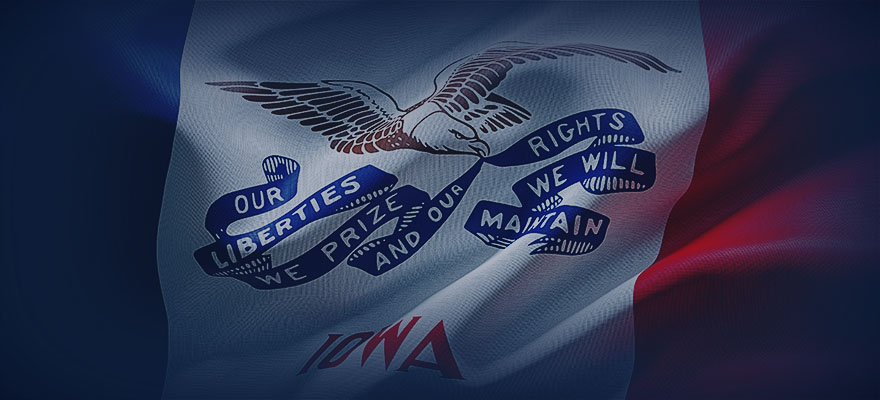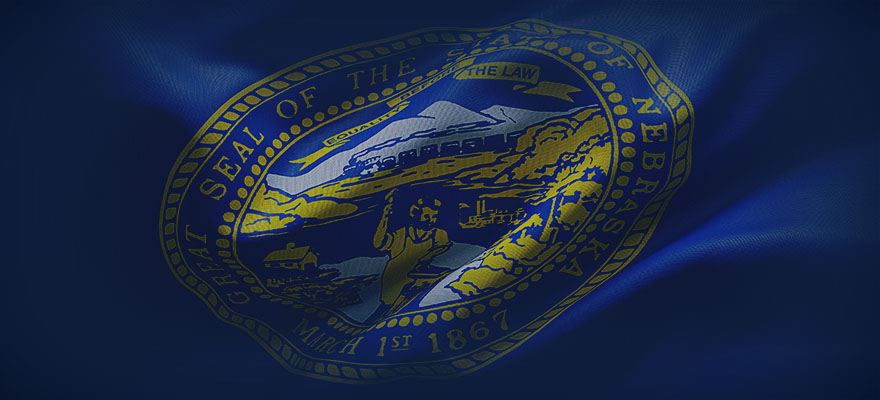Updates by State
- Alaska Local Tax Update – City of Mekoryuk
- Colorado Online Filing and Remittance – City of Northglenn
- Illinois Makes Changes to the Retailers’ Occupation Tax Act
- Iowa’s Department of Revenue: Big Changes
- Iowa Counties Receive Tax Penalty Relief After Severe Storms
- New Orleans Taxpayers to Use eServices to Replace Sales Tax Online in 2024
- Louisiana: Governor Landry Proposes Tax Changes to Avert Fiscal Crisis
- Nebraska Introduces New Good Life Districts
- New Jersey: Big Upgrades to Tax Filing System Coming in Early 2025
- Oklahoma: Changes for Sales Tax on Food
- Manitoba: 2024 Taxation Changes
Alaska Local Tax Update – City of Mekoryuk
Written by: Daniel Tilson
The Alaska Remote Seller Sales Tax Commission (ARSSTC) has announced that the City of Mekoryuk has met the requirements to join the ARSSTC and will start collecting a remote seller sales rate of 4% on October 1, 2024. (Source)
Colorado Online Filing and Remittance – City of Northglenn
Written by: Daniel Tilson
Effective with the June (due July) 2024 filing/remittance period onwards, the city of Northglenn, CO has requested that all returns and payments be submitted via the city’s Online Tax Platform.
If an ACH debit payment cannot be completed via the Online Tax Platform, filings must still be completed online, with a paper check being submitted via mail to the Northglenn City Hall at the following address:
City of Northglenn Finance Dept
Attn: Sales Tax Division
11701 Community Center Dr.
Northglenn, CO 80233-8061
Please reach out to the City of Northglenn via email at salestax@northglenn.org for any further questions.
Illinois Makes Changes to the Retailers’ Occupation Tax Act
Written by: Claire Ashcraft
Under SB 3362, the new amendment to the Retailers’ Occupation Tax Act requires that retailers selling tangible personal property to Illinois customers from outside the state are considered to be engaging in retail sales in Illinois under certain conditions. Retailers with a physical presence in Illinois must collect and remit sales tax based on the destination of the sale, even if the inventory is located out of state. This is effective January 1, 2025, and is expected to increase sales tax allocations while decreasing use tax allocations.
Iowa’s Department of Revenue: Big Changes
Written by: Claire Ashcraft
On July 1, the Department of Revenue merged with the Alcoholic Beverages Division and Iowa Lottery to form a single agency. This allows the DOR to provide all the information for licensing, permits, compliance, and revenue collection in one place.
On July 9, the DOR launched a new website. The old website was tax.iowa.gov, and the new website is revenue.iowa.gov.
Iowa Counties Receive Tax Penalty Relief After Severe Storms
Written by: Claire Ashcraft
Governor Reynolds has declared several counties in Iowa disaster areas due to recent severe storms, authorizing a Proclamation of Disaster Emergency. Tax penalty relief is now available for affected taxpayers in these areas who missed filing or payment deadlines due to storm-related record destruction.
Affected taxpayers can request penalty relief through GovConnectIowa or by submitting a Penalty Waiver Request if they missed deadlines falling on or after the disaster proclamation dates listed for their counties. It is important to note that this relief does not extend the due dates for tax returns or payments to the Iowa Department of Revenue. See the Disaster Emergency Tax Penalty Relief page on GovConnectIowa for more information, including a list of counties and dates.
New Orleans Taxpayers to Use eServices to Replace Sales Tax Online in 2024
Written by: Zachary McCauley
As of October 31, 2024, the City of New Orleans will transition from the Sales Tax Online platform to eServices for tax payments. While historical records will still be accessible through Sales Tax Online, future filings will need to be completed using eServices. This updated platform offers enhanced self-service options such as viewing past payments, updating registration information, and requesting payment plans. It also expands payment options for various tax types, including sales, hotel, gaming, and excise taxes, and provides improved security and access to a chatbot for common inquiries.
To get started with eServices, new users must create a profile and link their tax account by providing information such as their Legal/DBA name, account number, or FEIN/SSN. Additionally, users will need details from previous filings, such as the account ID and filing periods, to verify their accounts. This process ensures that tax accounts are securely linked to the new system and ready for future use.
If taxpayers encounter issues logging in or verifying their accounts, they can request a verification letter, which will take 7-10 business days to arrive. Alternatively, in-person assistance is available at 1300 Perdido St., New Orleans, LA 70112, where kiosks are set up to help users create their accounts. For further support, taxpayers can contact the Bureau of Revenue via email or phone, providing matching credentials for assistance.
eServices not only offer broader tax categories and payment options but also enhance convenience and security for New Orleans taxpayers. The move is designed to streamline the filing process while offering tools to simplify tax management and provide faster, easier access to necessary services.
For more information regarding setting up and accessing your tax accounts on eServices, please see the following instructions from the city:
As a new user, create an account profile on eService. You will then have to associate your tax account to your profile. To do this association, you will need the following information:
- Legal/DBA Name
- Account Number (Account ID) OR Federal Employer Identification Number (FEIN) OR Social Security Number (SSN)
Users will also need to provide details from one of the following return types:
- 8010 Hotel Motel Sales Tax
- 810STR-RC Short-Term Rental
- 8031 Wholesale Dealer Excise Tax
- 8071 Sales and Use Tax
- Gaming Tax
- Hazardous Materials
To associate your account, owners can verify using prior filings between January 2024 and May 2024. To verify, please have the following information available:
- Account ID (Account Number)
- Account Type (Tax Form)
- Previous Filing Year
- Previous Filing Period
- Previous Filing Amount (including $0 filings)
Please note: If this information is not available, users can request a letter be sent by mail with a unique letter ID authorizing access to the account. Please allow 7-10 business days for the mailer to reach you prior to contacting the Bureau of Revenue.
Louisiana: Governor Landry Proposes Tax Changes to Avert Fiscal Crisis
Written by: Zachary McCauley
Louisiana Revenue Secretary Richard Nelson has introduced a comprehensive tax reform plan to address the state’s projected $666 million budget shortfall in 2026. The proposal, contingent on legislative approval and potential constitutional changes, emphasizes reductions in both individual and corporate income tax rates. These reductions would be balanced by expanding the sales tax base, specifically to include digital goods and select services, while eliminating certain tax exemptions, thus generating new revenue to bridge the budget gap.
Governor Jeff Landry intends to advocate for these reforms in a special legislative session slated for November, with the goal of implementing immediate tax reductions by January 2025. However, more extensive reforms, such as constitutional amendments, would necessitate voter approval in March 2026. Nelson underscored the importance of swift legislative action, highlighting that earlier reforms could lead to immediate economic relief by adjusting income tax withholding.
The urgency stems from the expiration of temporary taxes in 2025, including a 0.45% sales tax and a 2% tax on business utilities, which could result in a substantial revenue shortfall in 2026. The proposed plan includes reducing the corporate income tax to 5% or lower and phasing out both inventory and corporate franchise taxes, measures that are intended to make Louisiana more attractive to businesses.
To compensate for the lost revenue from tax cuts, the plan seeks to broaden the sales tax base by extending it to digital goods and certain services and removing selected exemptions. If feasible, the administration also aims to reduce the overall sales tax rate from 4.45%, thereby easing the tax burden on residents while maintaining fiscal stability.
Nebraska Introduces New Good Life Districts
Written by: Claire Ashcraft
The Nebraska Good Life Districts went into effect on April 1, 2024. These special districts receive a reduction in the state sales tax from 5.5% to 2.75%. The special districts were created to develop and promote economic welfare, attract new employment opportunities, entice new businesses, and strengthen the tourism, retail, and entertainment industries. More information about the Good Life Districts can be found on the Nebraska Economic Development website and the Good Life Transformational Projects Act Guidelines.
New Jersey: Big Upgrades to Tax Filing System Coming in Early 2025
Written by: Andrea Morrison
The New Jersey Division of Taxation is undertaking a modernization initiative for its tax filing system with a five-stage strategy. Beginning in 2025, businesses and tax preparers dealing with sales and use tax will access a new, secure taxpayer portal to engage with the state’s tax filing framework. This portal will offer users direct filing options and greater control over their accounts. Marking the first significant update in over four decades, the portal signifies a transformative shift in how tax filers and preparers engage with the Division of Taxation. The initial phase, set to launch in early 2025, will encompass the seventeen taxes categorized under Sales and Use. Subsequent phases will introduce additional tax categories and functionalities. Regular updates on portal enhancements, key dates, preparatory activities for businesses and individuals, and the anticipated impact on New Jersey tax filers and preparers will be provided on this platform.
Oklahoma: Changes for Sales Tax on Food
Written by: Zachary McCauley
Oklahoma House Bill 1955, also known as the “grocery tax” bill, eliminated the state sales tax on food and food ingredients effective August 29, 2024. This legislation aims to alleviate the financial burden on residents by removing the state tax from items like milk, fruits, vegetables, and pasta. This change, in conjunction with Senate Bill 1283, affects only the state portion of the sales tax, leaving local taxes unchanged.
The exemption applies broadly to grocery items but does not extend to all categories. Prepared foods, alcoholic beverages, and dietary supplements will remain taxed at the full state rate of 4.5%. Prepared foods are defined as items ready for immediate consumption, often sold with utensils or after being heated or mixed. Specific exemptions include raw meat that requires consumer cooking and foods sold by weight without utensils. More information regarding the definition of prepared food can be found in the Oklahoma Product Guide.
Despite the removal of the state sales tax on grocery items, local sales taxes will still apply, meaning that the overall tax burden may not see a significant reduction for consumers. Additionally, prepared food from restaurants and vendors with a high percentage of prepared food sales will incur both state and local taxes. Retailers need to carefully navigate these rules and adhere to the 75% rule, which dictates that if more than 75% of a seller’s food sales are for prepared foods, the tax status of their products must be determined accordingly.
Businesses must update their tax collection systems to comply with these changes that became effective August 29, 2024, and cease collecting state sales tax on exempt food items from that date forward. Items purchased before this date are still subject to the state sales tax.
For more information and detailed examples of how the bill affects sales, please visit the Oklahoma Tax Commission.
Manitoba: 2024 Taxation Changes
Written by: Christina Stainbrook
Manitoba, Canada, released an information bulletin in April 2024 outlining many changes to taxation across all tax types. The following changes are specific to Transaction taxes:
Retail Sales Tax: Registration Threshold and Commission Changes
Starting January 1, 2024, the sales tax registration threshold increased from $10,000 to $30,000. Small businesses with gross annual sales of $30,000 or less no longer need to register to collect and remit sales tax. However, those that de-register must still pay sales tax on taxable purchases of goods and services. This registration exception does not apply to businesses that use suppliers outside of the province that do not collect Manitoba sales tax, nor to businesses that sell tobacco or liquor products. Additionally, sales tax commissions were eliminated for all filing periods ending after April 2024.
Fuel Tax: Fuel Tax Holiday Extension
The fuel tax holiday that began on January 1, 2024, and was originally scheduled to end on June 30, 2024, was extended by three months until September 30, 2024. During this period, there was no fuel tax on gasoline, diesel, marked gasoline, and marked diesel.
Vaping Tax: Vaping Product Taxation Agreement
Manitoba will enter into a Coordinated Vaping Product Taxation Agreement with the federal government, which is set to take effect on January 1, 2025. Under this agreement, the federal excise tax on vaping products will be increased, allowing revenue from vaping products sold in Manitoba to be shared equally between the province and the federal government. Both entities will receive the following tax revenue from vaping products:
- $1.00 for every two milliliters for containers under ten milliliters
- $5.00 for the first ten milliliters, plus $1.00 for each additional ten milliliters or any fraction of that amount for containers over 10 milliliters

TRANSACTIONTAX360™
Compliance is just one piece of the transaction tax lifecycle. As your dedicated partner, DMA offers a unique, comprehensive approach to solving your toughest tax challenges. We call it TRANSACTIONTAX360™.
Our transaction tax and tax technology teams work with you to provide jurisdiction- and industry-specific tax expertise along with process optimization and automation.







